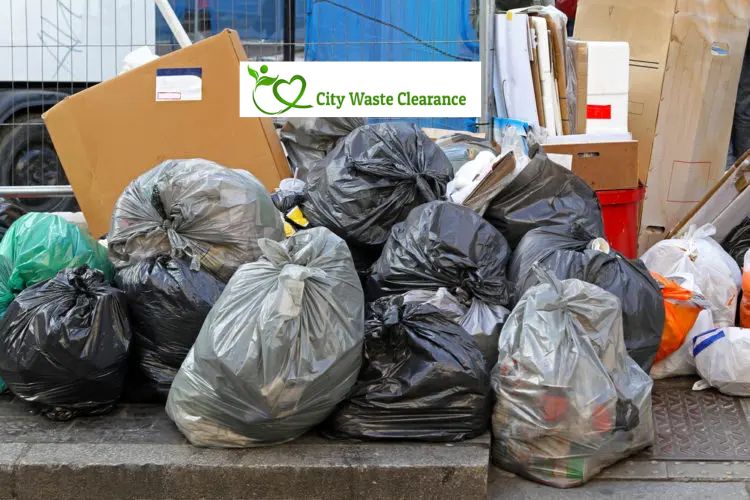Local waste disposal involves collecting, transporting, and processing waste materials. Efficient disposal helps maintain a clean environment.
Proper waste disposal is crucial for community health and environmental protection. Local governments often provide waste collection services, including recycling programs. These services ensure that waste is managed sustainably. Residents are encouraged to segregate waste into categories like organic, recyclable, and hazardous.
This segregation helps in efficient processing and reduces landfill use. Public awareness campaigns educate people about the importance of waste reduction. Community involvement in waste management can lead to a cleaner, healthier environment. By following local waste disposal guidelines, residents contribute to sustainability efforts. Effective waste disposal practices help conserve resources and reduce pollution.
Importance Of Proper Local Waste Disposal
Proper Local waste disposal helps keep our planet clean. It reduces pollution and protects wildlife. Recycling can save natural resources. Composting can enrich the soil. Landfills can become smaller with proper waste disposal. Less waste in oceans protects marine life. Clean air and water benefit everyone. Proper disposal can fight climate change.
Proper waste disposal keeps our communities healthy. It reduces the risk of diseases. Clean surroundings mean fewer pests. Proper disposal prevents contamination of food and water. It improves air quality. Safe waste handling protects workers. Clean environments lead to healthier lives.
Types Of Waste
Organic waste includes food scraps, yard clippings, and other natural materials. These items decompose over time. Composting helps to manage organic waste. It turns waste into valuable soil. This reduces waste in landfills.
Recyclable materials include paper, glass, metals, and certain plastics. These items can be processed and reused. Recycling helps save natural resources. It also reduces pollution. Always separate recyclables from other waste.
Hazardous waste includes batteries, chemicals, and electronic devices. These items can be harmful. Special disposal methods are needed. Never throw hazardous waste in the regular trash. Always use designated drop-off points.
Recycling Tips
Sorting waste helps the environment. Separate plastics, paper, and glass. Use different bins for each type. Keep food waste out of recycling bins. Clean containers before recycling. Label bins for easy sorting. Teach children the importance of sorting.
Local recycling centers accept sorted waste. Check the hours of operation. Some centers take electronics and batteries. Ask staff for help if needed. Follow guidelines for each material. Use community resources for large items.
Composting At Home
Choose a shady spot for your compost bin. Make sure it is easy to reach. Your bin needs good air flow. Drill holes in the sides if needed. Place the bin directly on the soil. This allows worms and bugs to help break down the waste.
You can compost fruit and vegetable scraps. Coffee grounds and eggshells are good too. Yard waste like grass clippings and leaves can go in. Avoid meat, dairy, and oily foods. These items attract pests.
Community Initiatives
Local clean-up events help keep our neighborhoods clean. People gather to pick up trash. These events make the area look nice. They also help the environment. Volunteers often find strange items. Sometimes they find old toys or shoes. These events can be fun for kids and adults.
Educational programs teach people about waste disposal. They explain how to separate trash. People learn the importance of recycling. Schools often have these programs. Kids learn to throw trash in the right bin. They also learn about composting. This makes less trash go to the landfill.
Reducing Waste
Local waste disposal solutions play a crucial role in reducing waste. Effective recycling programs and community awareness can significantly minimize landfill contributions.
Minimalist Lifestyle
Living a minimalist lifestyle helps reduce waste. You buy only what you need. Less stuff means less trash. It’s a simple way to help the planet. Quality over quantity is key. Fewer items last longer and reduce waste.
Reusing And Repurposing
Reusing items can cut down on waste. Instead of throwing things away, find new uses for old items. Glass jars can store food. Old clothes can become cleaning rags. Repurposing is fun and creative. It also helps the environment. Teach kids to reuse and repurpose too.
Frequently Asked Questions
What Can I Recycle Locally?
You can recycle paper, cardboard, glass, metals, and certain plastics. Check local guidelines for specific items.
How Do I Dispose Of Hazardous Waste?
Take hazardous waste to designated collection centers. Items like batteries, paints, and chemicals should not go in regular trash.
Where Is My Nearest Waste Disposal Site?
Use your city’s waste management website or call local services to find the nearest disposal site.
Conclusion
Effective local waste disposal is essential for a clean and healthy community. By following proper disposal guidelines, we reduce pollution and conserve resources. Always stay informed about your local disposal regulations. Together, we can make a significant difference in our environment.
Make responsible waste management a priority today.


